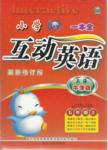题目内容
At railway stations all across Britain next week, groups of students will gather with their backpacks to wait for the trains that will carry them home for Christmas. This is as large a movement of human beings as before, but with more contradictory traffic flows, so that trains filled with the young pass each other travelling in every direction.
At first, I went home every weekend with my washing, but then those visits became less regular. How did I let my parents know I was coming? They had no phone. Perhaps I wrote to them ("Expect me with dirty shirts this Friday afternoon"), but more likely I didn't let them know, and just turned up or didn't turn up, not understanding that my parents' dashed hopes of seeing me were a greater casualty of my carelessness than a spoiled tea.
And in all this I suspect I was typical, at least of young men. As for our fathers and mothers, none of them talked of "empty-nest syndrome", even though its implication that the principal human duty is to protect and feed the young would have suited their generation better than ours. Then, the feelings of loss went without a name. Today, it's a condition with remedies, which will make parents feel more enjoyable in their life. The Mayo Clinic, for example, suggests you try to maintain regular contact with your children through "visits, phone calls, emails, texts or video chats". If you feel depressed, lean on loved ones or your mental health provider. Above all, stay positive: "Thinking about the extra time and energy you might have to devote to your marriage or personal interests after your last child leaves home might help you adapt to this major life change."
What can’t be denied, however, is that children often leave home. In modern societies, this is what they do. Christmas is the very time they can be depended on to return. For the non-religious, that may be this season’s true comfort and significance.
【小题1】The main reason for the busy traffic across Britain next week is that .
| A.young students will travel home for Christmas |
| B.young people will travel in every direction |
| C.it is a large movement of human beings |
| D.the traffic flows will be more contradictory |
| A.went home every week to wash dirty clothes |
| B.understood his parents’ desire of seeing him |
| C.didn’t understand his parents’ feelings |
| D.went home to see his parents regularly |
| A.reasons | B.excuses | C.habits | D.solutions |
| A.in modern society, children should leave home |
| B.Christmas is likely a time for family reunion |
| C.the significance of Christmas is celebration |
| D.Christmas is not a comfort for the non-religious |
| A.persuade the young to show concern for their parents |
| B.ask the young to go home regularly |
| C.make the young understand their parents’ interests |
| D.enable the young to be more independent |
【小题1】A
【小题2】C
【小题3】D
【小题4】B
【小题5】A
解析试题分析:本文是一篇故事,讲述了圣诞前夕英国大批青年学生乘火车回家,由此引发了作者回顾自我的经历并意识到,当年他根本没有意识到父母对孩子的关爱。文章还给上了年纪的人如何排解空巢的孤独感和孩子们一些建议。
【小题1】考查细节理解能力。根据文章第一段 groups of students ...will carry them home for Christmas可知选A。
【小题2】考查推理判断能力。根据文章第二段内容 not understanding that my parents' dashed hopes of seeing me were a greater casualty of my carelessness than a spoiled tea可知选C。
【小题3】词义猜测能力。根据该句后面定语从句的解释 which will make parents feel more enjoyable in their life可知是补救办法,纠正办法,解决方法之意。
【小题4】考查推理判断能力。根据最后一段理解 Christmas is the very time they can be depended on to return可知圣诞节是家人重聚的日子。
【小题5】考查文章主旨推理判断能力。理解整个故事可知作者的目的是劝诫年轻人要对父母表示关心。
考点:夹叙夹议类文章。
点评:讲述了圣诞前夕英国大批青年学生乘火车回家,触景生情,由此引发了作者的对往事的感慨。同时还给上了年纪的人如何排解空巢的孤独感和孩子们一些建议。夹叙夹议类文章的阅读注意往往是先叙后议,通过记叙一件事情得到一个什么启示,教训等。要注意文章的议论部分,这往往是文章的意图,文章的升华部分。

 互动英语系列答案
互动英语系列答案 名牌学校分层周周测系列答案
名牌学校分层周周测系列答案 黄冈海淀全程培优测试卷系列答案
黄冈海淀全程培优测试卷系列答案